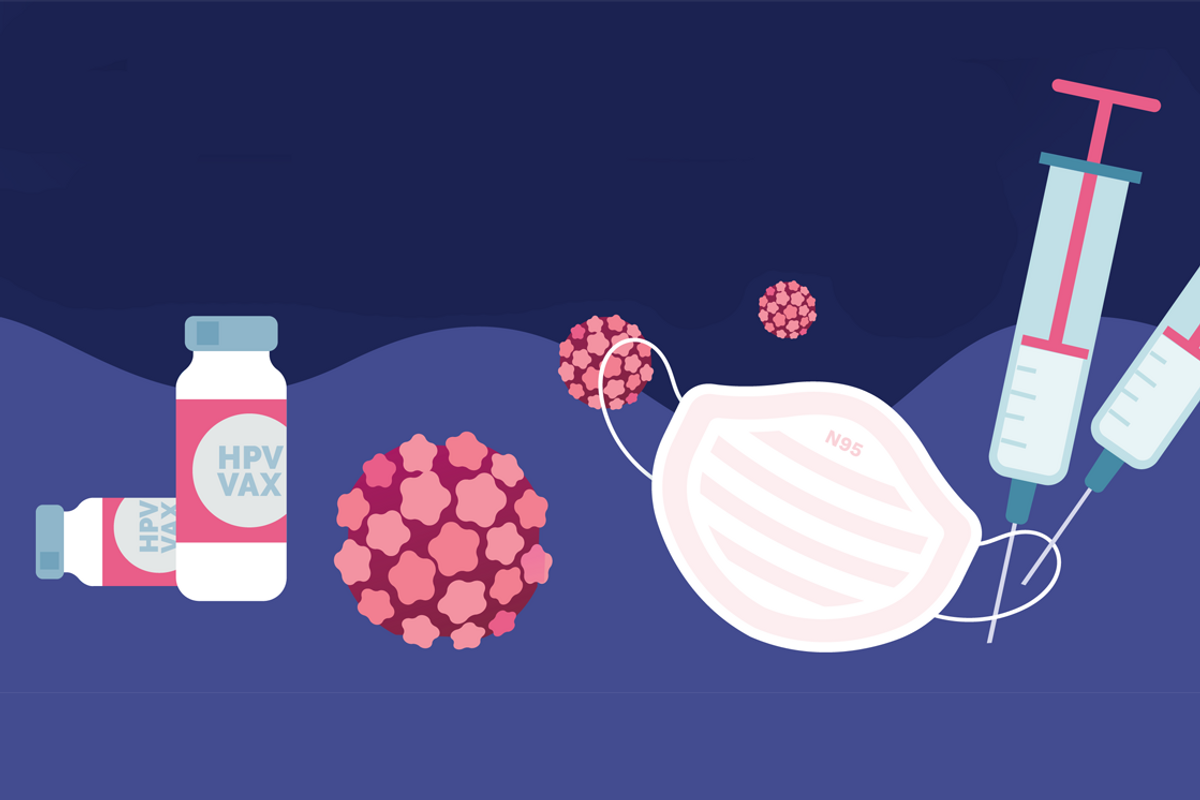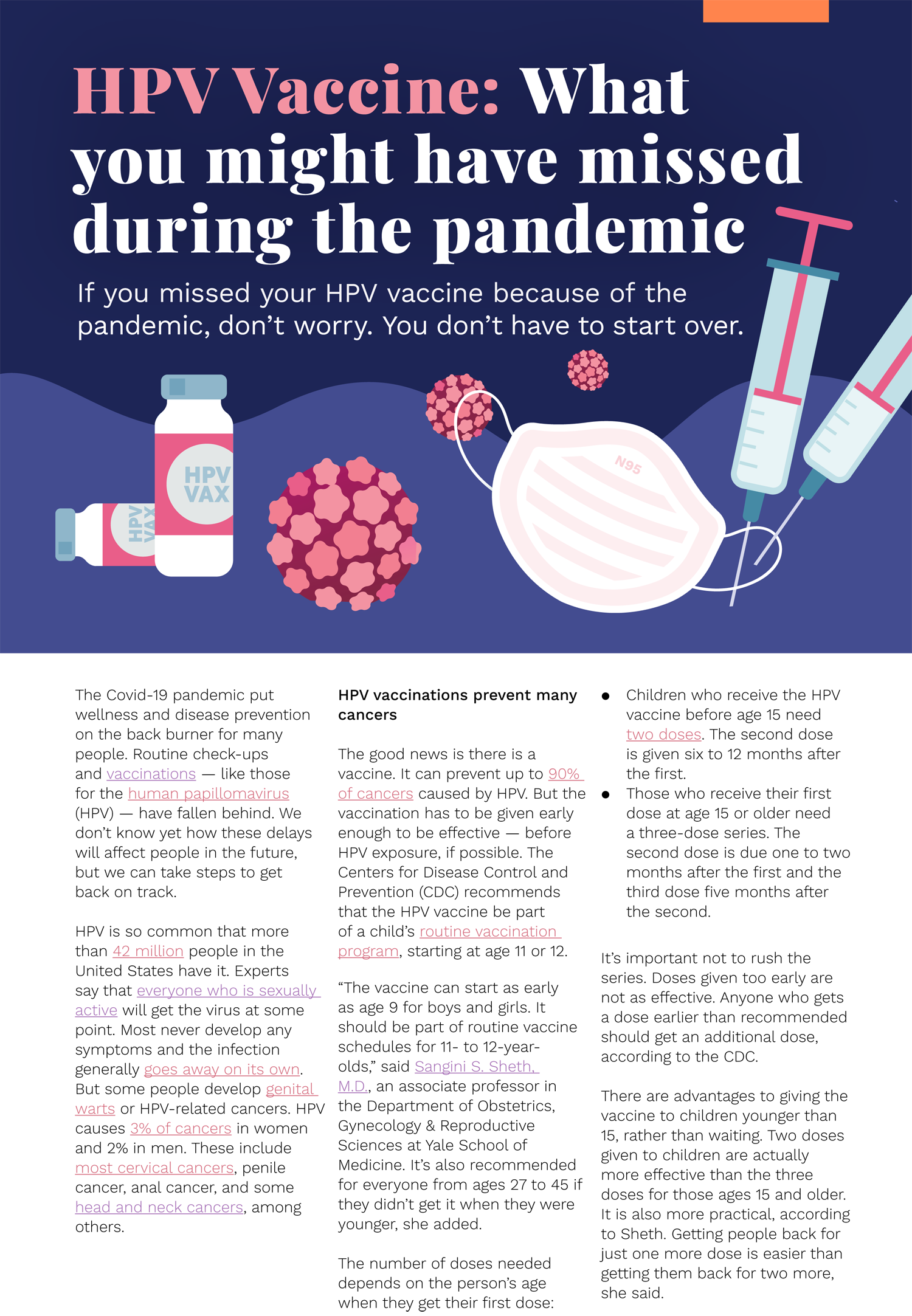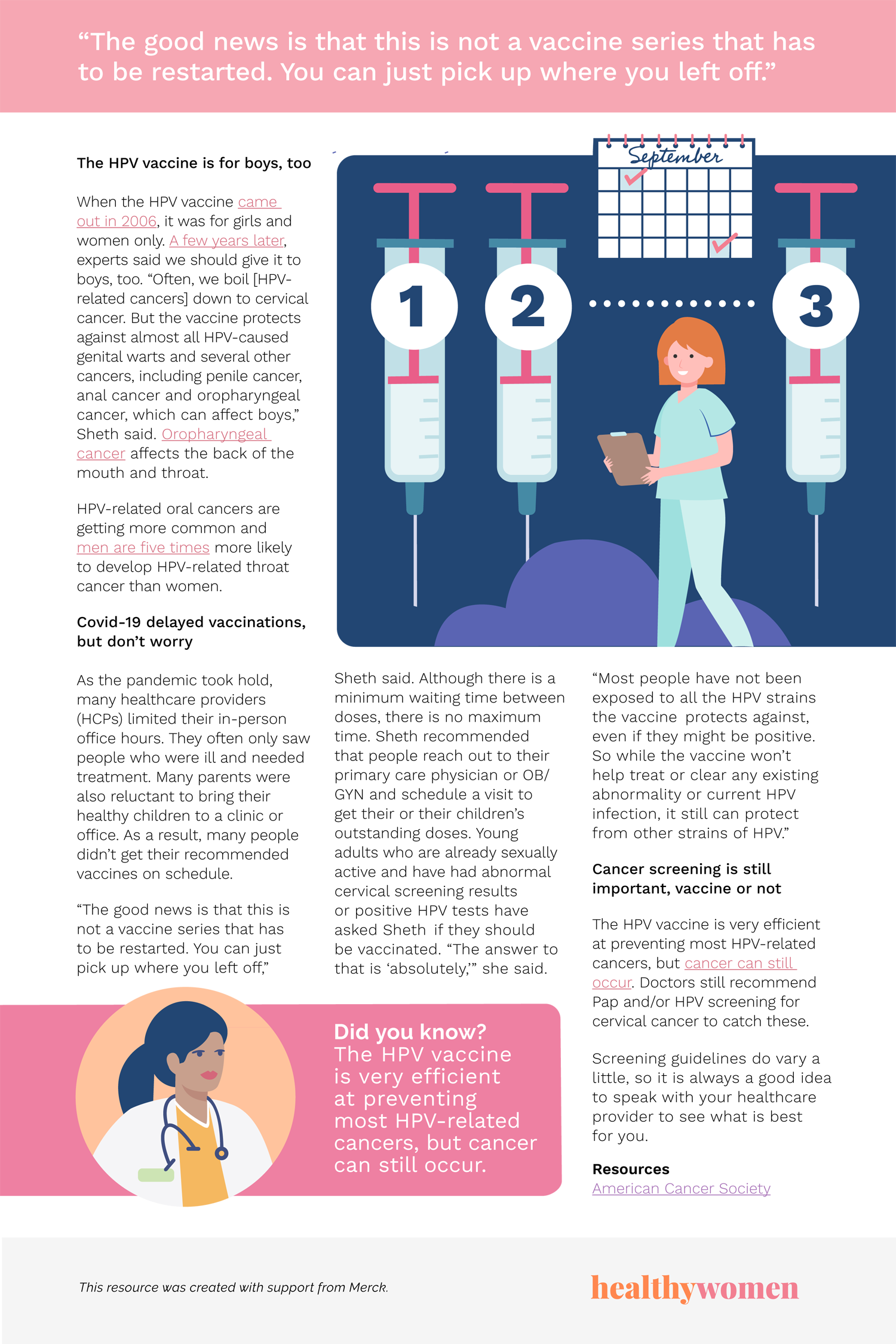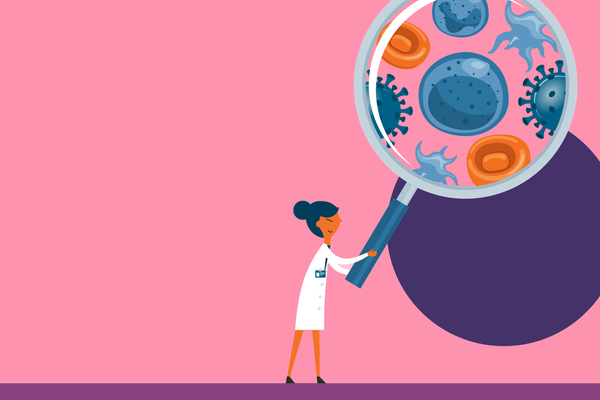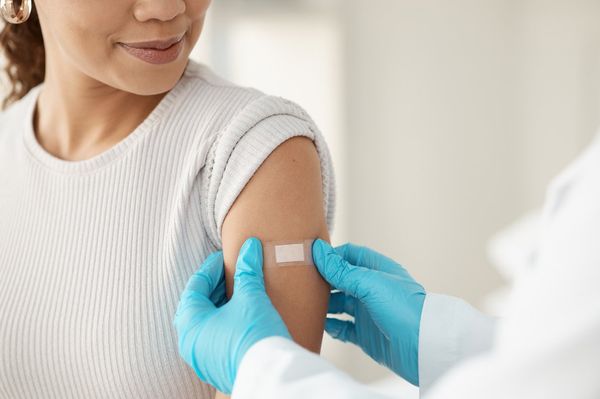The Covid-19 pandemic put wellness and disease prevention on the back burner for many people. Routine check-ups and vaccinations — like those for the human papillomavirus (HPV) — have fallen behind. We don’t know yet how these delays will affect people in the future, but we can take steps to get back on track.
HPV is so common that more than 42 million people in the United States have it. Experts say that everyone who is sexually active will get the virus at some point. Most never develop any symptoms and the infection generally goes away on its own. But some people develop genital warts or HPV-related cancers. HPV causes 3% of cancers in women and 2% in men. These include most cervical cancers, penile cancer, anal cancer, and some head and neck cancers, among others.
HPV vaccinations prevent many cancers
The good news is there is a vaccine. It can prevent up to 90% of cancers caused by HPV. But the vaccination has to be given early enough to be effective — before HPV exposure, if possible. The Centers for Disease Control and Prevention (CDC) recommends that the HPV vaccine be part of a child’s routine vaccination program, starting at age 11 or 12.
“The vaccine can start as early as age 9 for boys and girls. It should be part of routine vaccine schedules for 11- to 12-year-olds,” said Sangini S. Sheth, M.D., an associate professor in the Department of Obstetrics, Gynecology & Reproductive Sciences at Yale School of Medicine. It’s also recommended for everyone from ages 27 to 45 if they didn’t get it when they were younger, she added.
The number of doses needed depends on the person’s age when they get their first dose:
- Children who receive the HPV vaccine before age 15 need two doses. The second dose is given six to 12 months after the first.
- Those who receive their first dose at age 15 or older need a three-dose series. The second dose is due one to two months after the first and the third dose five months after the second.
It’s important not to rush the series. Doses given too early are not as effective. Anyone who gets a dose earlier than recommended should get an additional dose, according to the CDC.
There are advantages to giving the vaccine to children younger than 15, rather than waiting. Two doses given to children are actually more effective than the three doses for those ages 15 and older. It is also more practical, according to Sheth. Getting people back for just one more dose is easier than getting them back for two more, she said.
The HPV vaccine is for boys, too
When the HPV vaccine came out in 2006, it was for girls and women only. A few years later, experts said we should give it to boys, too. “Often, we boil [HPV-related cancers] down to cervical cancer. But the vaccine protects against almost all HPV-caused genital warts and several other cancers, including penile cancer, anal cancer and oropharyngeal cancer, which can affect boys,” Sheth said. Oropharyngeal cancer affects the back of the mouth and throat.
HPV-related oral cancers are getting more common and men are five times more likely to develop HPV-related throat cancer than women.
Covid-19 delayed vaccinations, but don’t worry
As the pandemic took hold, many healthcare providers (HCPs) limited their in-person office hours. They often only saw people who were ill and needed treatment. Many parents were also reluctant to bring their healthy children to a clinic or office. As a result, many people didn’t get their recommended vaccines on schedule.
“The good news is that this is not a vaccine series that has to be restarted. You can just pick up where you left off,” Sheth said. Although there is a minimum waiting time between doses, there is no maximum time. Sheth recommended that people reach out to their primary care physician or OB/GYN and schedule a visit to get their or their children’s outstanding doses.
Young adults who are already sexually active and have had abnormal cervical screening results or positive HPV tests have asked Sheth if they should be vaccinated. “The answer to that is ‘absolutely,’” she said. “Most people have not been exposed to all the HPV strains the vaccine protects against, even if they might be positive. So while the vaccine won’t help treat or clear any existing abnormality or current HPV infection, it still can protect from other strains of HPV.”
Cancer screening is still important, vaccine or not
The HPV vaccine is very efficient at preventing most HPV-related cancers, but cancer can still occur. Doctors still recommend Pap and/or HPV screening for cervical cancer to catch these.
Screening guidelines do vary a little, so it is always a good idea to speak with your healthcare provider to see what is best for you.
Resources
American Cancer Society
This resource was created with support from Merck.
- HPV Vaccine: Pros and Cons - HealthyWomen ›
- Hpv 2022 - HealthyWomen ›
- Human Papillomavirus, HPV - HealthyWomen ›
- HPV Vaccine - HealthyWomen ›
- Talking to Your Provider About the HPV Vaccine for Adults - HealthyWomen ›
- Talking to Your Provider About the HPV Vaccine for Adults - HealthyWomen ›

